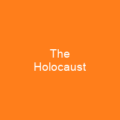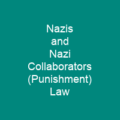Defining the Holocaust Survivor
Imagine a world where every day is a reminder of unimaginable horrors, where the very air you breathe carries the weight of loss and trauma. This is the reality for Holocaust survivors. These are individuals who lived through the darkest chapter in human history—persecution and attempted annihilation by Nazi Germany and its allies during World War II.
Who Are Holocaust Survivors?
When we talk about Holocaust survivors, we’re referring to those who endured the horrors of concentration camps, partisans in the forests, or those who escaped before it was too late. They are the living witnesses to a genocide that claimed millions of lives.
The Definition Expands
But what exactly does Holocaust survivor mean? The term has evolved over time, with institutions like Yad Vashem and the United States Holocaust Memorial Museum refining its definition. It now includes not only Jews but also non-Jews who experienced collective persecution under Nazi rule.
Broadening the Scope
Take, for instance, Poland, where around 90% of the Jewish population was murdered by Nazis and their collaborators. Yet, a few thousand managed to survive in hiding or with the help of non-Jewish allies. These individuals, too, are considered Holocaust survivors.
Immediate Needs and Challenges
The immediate needs faced by these brave souls were as varied as their experiences. Physical recovery from starvation, injuries, and diseases was paramount. Emotionally, they had to grapple with the loss of loved ones, homes, and ways of life. The trauma was profound, leaving many struggling to find a sense of normalcy.
Rebuilding Lives
Survivors faced numerous challenges in rebuilding their lives. Many could not return to their previous homes due to destroyed communities and looted properties. Those who couldn’t or didn’t want to go back became known as the Sh’erit ha-Pletah, the surviving remnant.
Search for Family and Home
The search for family members was a daunting task. Survivors posted notices on message boards, contacted tracing services, and even used lists compiled by organizations like the World Jewish Congress to reconnect with loved ones. The process could take years or continue until their last breath.
Heartbreak and Reunion
For those who found their families, it was a bittersweet reunion. Some children had been hidden by non-Jewish families, leading to custody battles and DNA testing to reclaim their identities. The emotional journey of these survivors is nothing short of heroic.
Post-War Anti-Semitic Violence
Even as the war ended, anti-Semitic violence persisted in Eastern Europe. Survivors had no choice but to flee once again, seeking new lives elsewhere. Many gathered in displaced persons camps, with some eventually immigrating to Israel or Western countries.
Rehabilitation and Healing
The physical and emotional trauma of the Holocaust left deep scars. Survivors required rehabilitation through medical care and psychological support. Many found inner strength to rebuild their lives, start families, and develop successful careers despite the odds.
Recording Testimonies
To ensure that the memories of the Holocaust were not lost, survivors began recording their testimonies. Organizations like the USC Shoah Foundation Institute videotaped personal accounts from 50,000 survivors and witnesses. These accounts have become invaluable sources for scholars studying this dark period in history.
Yizkor Books
Another way to commemorate lost family members and destroyed communities was through the compilation of Yizkor books. Over 1,000 such books were published, primarily in Yiddish or Hebrew. These books serve as a lasting tribute to those who perished.
Supporting Holocaust Survivors
A wide range of organizations have been established to support Holocaust survivors and their families. From local groups to international conferences, these organizations help survivors navigate the challenges they face daily. The ‘second generation’ of survivors—children born after World War II whose parents survived the Holocaust—has also raised important questions in psychology.
Second-Generation Survivors
The experiences of second-generation survivors are complex and multifaceted. They explore their feelings, integrate their parents’ trauma into their lives, and fight against Holocaust denial and racism. Awareness groups have developed to help them navigate these challenges.
Conclusion
Holocaust survivors are not just a part of history; they are living testaments to resilience and the human spirit’s ability to overcome unimaginable adversity. Their stories, recorded in testimonies and Yizkor books, serve as a reminder of the importance of remembering and learning from the past.

You want to know more about Holocaust survivors?
This page is based on the article Holocaust survivors published in Wikipedia (retrieved on March 1, 2025) and was automatically summarized using artificial intelligence.







